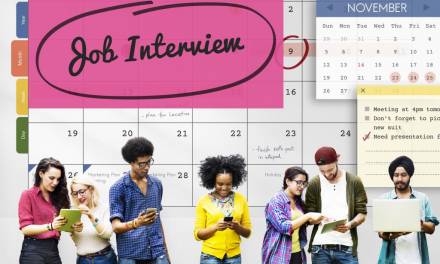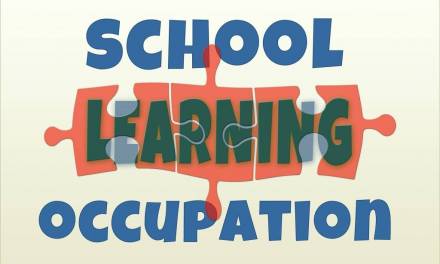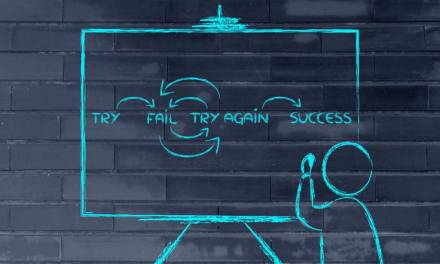Your students are ready to seek employment. After more than a decade of learning, their entire career could be influenced by the first job position they hold. There’s a lot riding on that interview – for which your pupils must be informed, calm and confident.
So how can you help them prepare for job interviews? Here are a few suggestions.
1. Help them prepare a CV
Even if your students have held part-time or holiday positions in the past, it’s possible that they have never had to write their own CV or completed anything more than the most perfunctory application form.
With little work experience to list, they will need to create a CV or personal statement which is honest, factual, and focuses on their personality and achievements at school and/or university.
Any exam qualifications should be listed, along with any extra-curricular activities that demonstrate their suitability for the role. Did they belong to any clubs or sports teams? Were they involved in amateur dramatics?
Start the CV with personal details, including a short statement about their personality and what they are looking for in a job. The personal statement should be as original as possible but there may be no way to really avoid the obvious phrases such as ‘I am a team player’!
Try to keep the CV to a single sheet of A4 and output it as a PDF file if sending it digitally. That way the formatting will be consistent irrespective of the device on which it is viewed.
Spelling and grammar should be checked and checked again. No one will make a great first impression if they can’t differentiate between the correct usage of ‘your’ and ‘you’re’.
2. Hold mock job interviews
Mock interviews are essential for preparing for the intensity and unpredictability of real-life interviews, and at least some should be held in front of large groups or an entire class to create an element of nervousness.
Practice, and practice often – repetition can be key to learning the vital skill of answering key questions in a natural, non-monotonous way.
Try to get local businesses involved in this process. They can prove a fresh source of inspiration, and students who shine could even score themselves a real-life interview.
The businesses could also put on mock interviews in their own format – this moves well and truly away from the template questions and online question repositories for a taster of how an actual interview may play out (just remember to ask the interviewers to provide written, as well as verbal, feedback).
Preparation is part of the process of attending job interviews. If the interviewer asks ‘what do you know about our company?’ and the interviewee is incapable of demonstrating any knowledge of the organisation, this will show a lack of preparedness and is unlikely to impress the interviewer.
3. Draw on your pupils’ aspirations
An interview for a trainee joiner is going to play out drastically differently to that of an administrative role – understanding the aspirations of your pupils can help you shape your mock interviews, put together possible speakers and advise and guide your pupils onto interview success.
Even something as simple as writing a personal statement should be tailored to the role they are applying for. There is no point in announcing your willingness to work as part of a team if the role is mostly autonomous.
4. Practice answering common interview questions
Answers to the following ten questions need to be practiced, with replies that sound natural (plenty of practice can provide good scope for speaking ad-lib).
A good interviewer will ask open questions that require more than a ‘yes’ or ‘no’ answer. Your students should practice giving different responses to these questions so that they have a selection of suitable answers.
- What can you tell me about yourself?
- What are your your strengths?
- What weaknesses do you have?
- Why should I consider hiring you?
- Where do you see yourself five years from now?
- Why do you want to work here?
- What is your salary expectation?
- What motivates you?
- What makes a good team player?
- Is there anything that you would like to ask me?
5. Hand your pupils a toolkit for tackling their nerves
No matter how good their grades or how personable or positive they are, if an interviewee is overwhelmed with nerves they could struggle to demonstrate their strengths.
Whilst the tips above can help alleviate some of the nerves that would be caused by having no experience, you should also arm them with ways to hide their apprehension too.
Help them to re-frame their mind-set – remind them that they’re interviewing the employer too and that this is an opportunity to see if they and their potential employer are a good match.
Shifting, fidgeting and playing with your hands can be calming, however it will almost certainly be distracting for the interviewer, so instruct your students to avoid visibly fidgeting – a good alternative is to clasp their hands together and circle their thumbs instead.
Confidence (or at least the appearance of confidence) will always benefit an interviewee. Help your students prepare their body language and practice a firm handshake, with their shoulders placed backwards, healthy eye contact maintained and putting on a confident smile.
Remember, if a prospective employee is avoiding eye contact and sitting with arms crossed (for example), this is negative and defensive body language and will be noted by the interviewer.
Often, the simplest way to create a positive impression with good body language is to mimic the body language of the interviewer. Also, by focusing on the other person, it is possible to overcome nervousness and demonstrate an understanding of basic body language techniques.
Finally, remind your students to listen actively and reply directly to the questions asked. They shouldn’t wait for their turn to speak in order to parrot a pre-prepared statement which doesn’t really answer the question.










